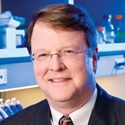 Close to four years ago, Reata Pharmaceuticals scored one of the biggest packages of upfront and near-term cash the industry had seen in any biotech licensing pact up to that point. AbbVie ($ABBV) signed up to partner on its chronic kidney disease drug bardoxolone by dangling $450 million in quick cash, and then came back a year later to get the full portfolio of follow-up drugs at Reata for another $400 million upfront.
Close to four years ago, Reata Pharmaceuticals scored one of the biggest packages of upfront and near-term cash the industry had seen in any biotech licensing pact up to that point. AbbVie ($ABBV) signed up to partner on its chronic kidney disease drug bardoxolone by dangling $450 million in quick cash, and then came back a year later to get the full portfolio of follow-up drugs at Reata for another $400 million upfront.
The deals quickly soured in one gut-wrenching moment in 2012, though, when Reata had to suddenly terminate its clinical work on the drug after the monitoring board tracked signs that the CKD patients in the drug arm were experiencing a higher rate of heart-related adverse events, including heart failure, hospitalizations and deaths.
 |
| Reata CEO Warren Huff |
Initially, the Irving, TX-based biotech and its partners at AbbVie went silent. But over the last few months Reata, still partnered with AbbVie, has launched a whole new development plan for bardoxolone. In an interview with FierceBiotech, Reata CEO Warren Huff says the company first had to slash its employee roster in half--scrapping efforts to build up a marketing arm in anticipation of a U.S. launch--and now operates with a staff of about 60. Researchers went back to the drawing board to figure out what had gone wrong. And back in May Reata began a Phase II study of bardoxolone for pulmonary arterial hypertension, confident that investigators can safely pursue a new development plan for the drug and blueprinting about a half dozen new studies for bardoxolone and a follow-up drug in the pipeline.
"We figured out what happened with CKD in the Beacon study," says Huff, "and that led us to PAH."
What happened, he explained, was that the drug caused fluid retention to spike in the first few weeks of treatment for the advanced, stage 4 CKD patients recruited for the study. Because the group already suffered from a high level of fluid retention to begin with, patients were exposed to a higher risk of severe adverse events.
"When we opened the vasculature they could retain more fluid," he says. In earlier studies, the company had recruited a mix of stage 3 and stage 4 patients, which softened the AE profile. "We really didn't see it until we got into a trial with thousands of patients," says Huff.
That response pretty much nixed further work on CKD, a field that Huff had once vowed would make bardoxolone into a megablockbuster. But Huff says investigators also came away with positive data on what happens when the drug hits the Nrf2 pathway. Reata tracked signs of improved mitrochondrial function, with more fat-burning and improved muscle metabolism--a response that Huff notes has been confirmed by other researchers focused on Nrf2.
That pointed Reata to PAH, a disease in which narrowed arteries in the lung forces one side of the heart to work overtime, triggering effects that include mitochondrial dysfunction and profound fatigue. The new Phase II dose-ranging study, which wraps in 2015, has its eye on demonstrating an improved performance in the 6-minute walk test. Significantly, Reata is hoping that bardoxolone can work as a complementary treatment to the roster of new drugs recently approved for PAH, a lineup that include's Bayer's Adempas (which delivered an average 36-meter improvement in a 6-minute walk test), Actelion's ($ATLN) Opsumit and others.
Reata plans to begin two other Phase II studies "imminently" for mitochondrial myopathy and Friedrich's ataxia. A followup program for RT-408 will explore its ability to enhance the effectiveness of the hot new immuno-oncology drugs in the field, combining 408 with Yervoy in melanoma patients. A lotion formulation of 408 will test its ability to protect tissue during radiation therapy for cancer. And another formulation is being readied as a possible eye treatment, guarding against corneal endothelial cell loss that can lead to blindness and transplant surgery.
"We have a very heavy load of activity with data on 6 studies coming in 6 to 18 months," says Huff. The first new data on bardoxolone and its successor 408 should start arriving later this year.
With much of AbbVie's money still in the bank, Huff adds that the company can operate for several more years without being forced to raise more cash.
"We had planned for failure," says Huff, "as this was not our first rodeo."
But he's once again mulling over the prospects of an IPO.
Says Huff: "I think we'll look and see what happens."
-- John Carroll (email | Twitter)